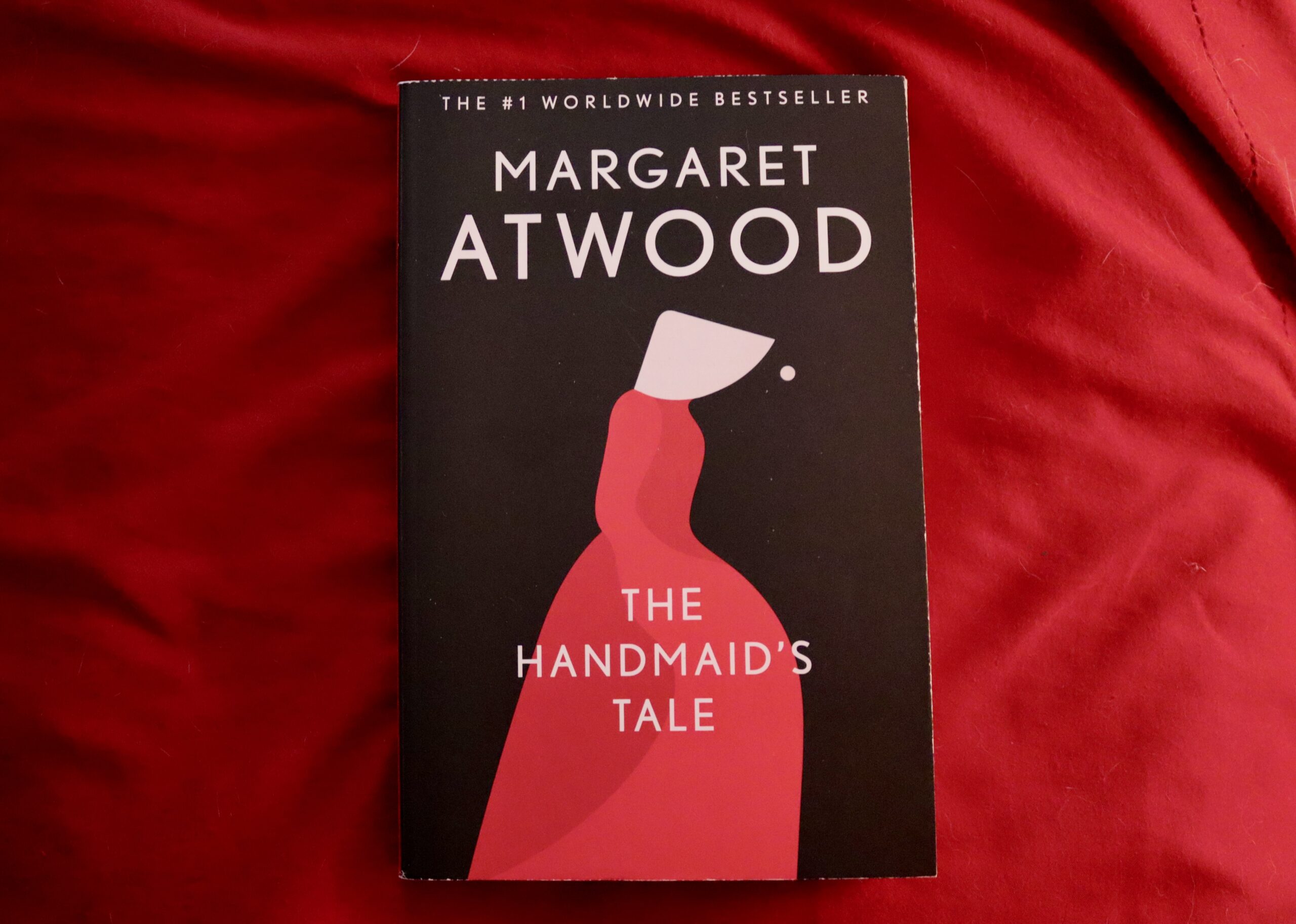The Handmaid’s Tale – Margaret Atwood
4/5
I wasn’t sure if I should review this one. It’s more of a classic. It would be like reviewing Stephen King’s It. Millions of people have read it. It’s known.
After reading it, after putting it down and sitting in a semi-stunned silence, I knew I had a lot to say.
I would call this book… Clever. Scary.
It would be easy for me to call this book a hyperbole, an extreme extrapolation of totalitarianism, that is both unrealistic and infeasible.
Atwood does a superb job of ensuring this does not feel like extremism. The more we read the more we learn about how women, girls, ended up in this situation. It may be akin to the slippery slope fallacy, the belief that just because one thing goes wrong more things will go wrong, but… It’s hard to sit here and say, “This can’t happen.” It’s already happening. Maybe not here in America, but in some parts of the world.
Gilead has taken over and it is a terrifying theocracy. Women lose rights to their bank accounts, their right to leave the house, and the “fertile” ones are taken and made into Handmaids. Men are put completely in charge. Sex is no longer for pleasure but for procreation. There are some religious foundations, quotes from the Bible, which may upset some audiences. Within this book, it is not the main focus. The main focus is on the routine the Republic puts on these women to enforce Gilead values.
Gilead placates women with a false sense of control. The Aunts, for example, have no more power than a Handmaid or a Wife, but because they have the responsibility of education and discipline, they are given greater “freedom”. They see this freedom as a privilege, not an inherent right. Other women, Handmaids, see there are women in positions of “power” and it skews their view of the entire circumstance.
“Truly amazing, what people can get used to, as long as there are a few compensations.”
Margaret Atwood, The Handmaid’s Tale
There is a wall, the Wall, that people will walk by and stare at. In fact, its on the way to the grocery store. On this wall, they hang the people who are not compliant, the “traitors”. Similar to George Orwell’s 1984, there are Eyes within the country that function as spies (also known as snitches). It maintains the same energy of fear, fear that your ruler is listening to you at any given time and could hang you for the smallest of infractions.
The characters are a little vague, but they are done that way on purpose. Their personalities are not loud, not like in most books, but subtle. It works with the entire message of the book, the silencing and placating of women. If women are being silenced, why would they have a personality? Why would they dare show any single one of their idiosyncrasies? Women are delicate flowers, meant to spread their legs and provide offspring, nothing more. Even their sight, with the use of silly hats, is blocked. Women cannot see. They cannot know.
Atwood uses flashbacks to before the Gilead takeover to build character within the narrator and within her best friend, Moira. In order to distinguish flashbacks from the current story, quotation marks were omitted after dialogue. It helped keep me engaged with the plot rather than confused and lost. The only bits of life you really see from the narrator come from these flashbacks with her husband, with her kid, with her best friend. She seems so empty and lost in the present story.
The final nail in the coffin, is the unreliable first-person narrator. This book reads like an internal monologue from a broken woman. Yes, suicide is mentioned. It’s common, even, because they take everything a Handmaid could hurt themselves away from them. It feels like a conversation with this person. That being said, since she is unreliable, you have to take time to consider certain situations from other perspectives. For instance, being a man in this type of environment sounds great. Unlimited sex with multiple women, a steady job, women working in your kitchen.
Whew, who would want to give that up? How far will they go to save this? How much will they manipulate her to make her give them what they want?
This book is incredibly sad. Chilling.
There’s a lot more to it that I cannot go over, will not go over. I feel as though I cannot convey how empty yet incredibly full this book feels at the same time. Yes, I know that’s an oxymoron. The flashbacks are full of vivid color. The rest?
It’s empty, lonely, and full of fear.
Because of this book, I may be a little more vocal, a little more adamant, and less willing to give.
I’m going to watch the TV show, which I have tried to do before but stopped because it made me too uncomfortable. I’m curious to see how they manage to convey the vagueness the book has.
4/5.
“Waste not want not. I am not being wasted. Why do I want?”
margaret Atwood, The handmaid’s Tale
